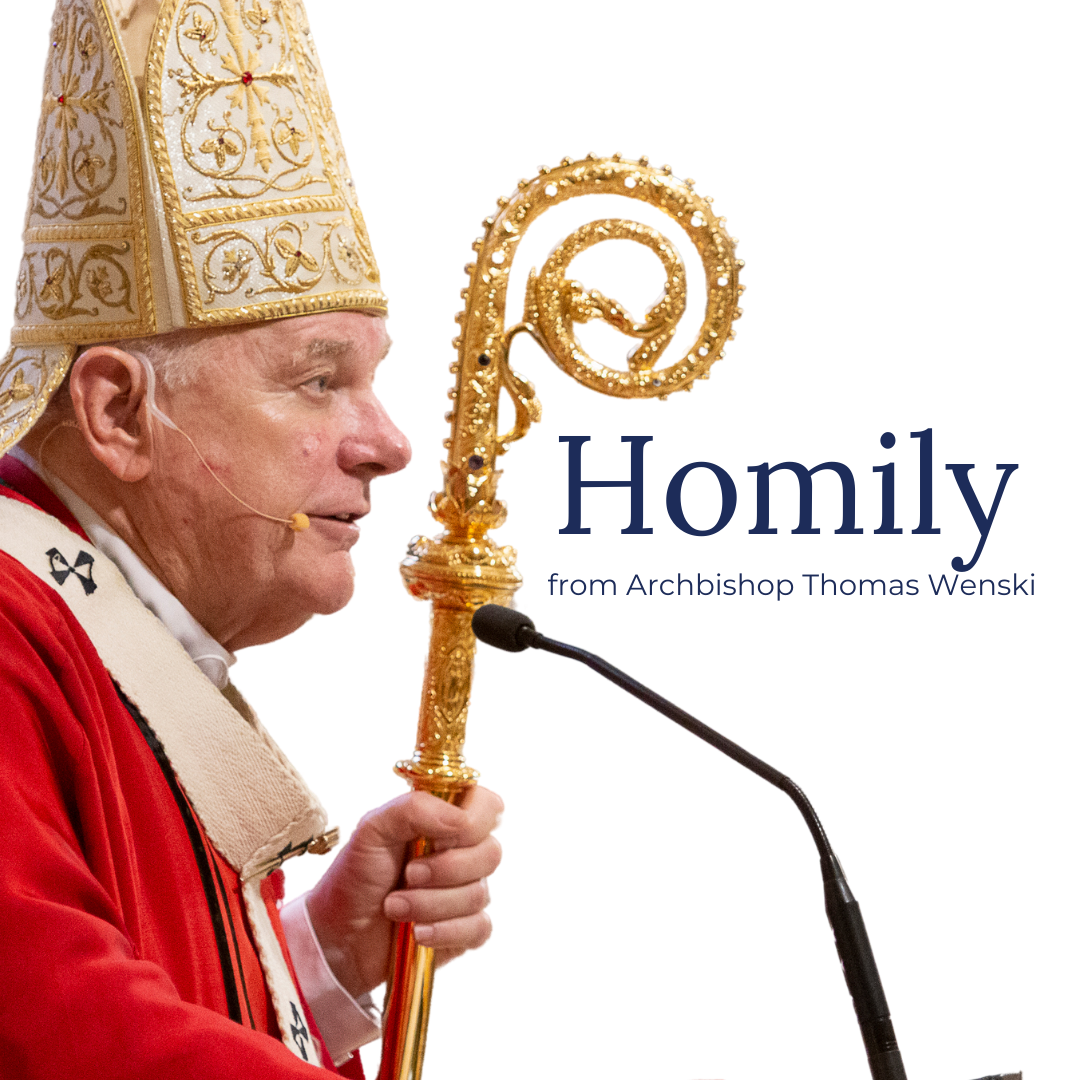By Archbishop Thomas Wenski - The Archdiocese of Miami
Homily by Archbishop Thomas Wenski at Red Mass with members of the legal profession at Gesu Church. Nov. 5, 2025.
When St. Paul tells the Romans, in this afternoon’s first reading, “Love is the fulfillment of the law", he means that when you act with genuine, selfless love toward God and your neighbors, you are naturally and completely obeying the spirit and purpose behind all of God's commandments. And in doing so, the common good is served.
The 10 commandments are not a divine exercise of judicial positivism, but expressions of the natural law written on the human heart. We cannot not know that lying, murder, or stealing is wrong. They are not just a rigid list of rules, of arbitrary “no’s” that constrain our freedom; the commandments are what makes freedom possible. Hence, the importance we ascribe to the “rule of law”. The great achievement of the American people has been the attainment of liberty for its citizens through the rule of law founded on the realism of natural law and not subjective relativism.
Your craft as lawyers and as officers of the court has as its foundation, its reason for being, the principle emblazoned on the façade of the United States Supreme Court building, “Equal justice under the law.” Often justice is taken to be something cold and calculating. When we think about the “justice system”, it often implies a certain impersonal objectivity.
We can see a type of such “impersonal objectivity” in the bitterly zealous legalism of Inspector Javert in Victor Hugo’s 19th century novel, Les Miserables. Javert relentlessly pursued Jean Valjean, who had spent years in prison for stealing a loaf of bread. Today, modern day Javerts bent on enforcing a broken, and thus unjust, immigration regime are deporting agricultural, construction, service and hospitality workers who are in an irregular immigration status. And various personalities in the government and in the news media fan flames of resentment against these supposed law breakers equating them with terrorists intent on hurting us. And I describe these migrants as “irregular” migrants, not as undocumented or illegal, for the majority of them have some type of documentation or even legal status, albeit a temporary legal status and most are not guilty of any serious crime.
But justice must be more than a cold and impersonal calculation, if love, as St. Paul says, is “the fulfillment of the law”. Justice is first and foremost a virtue. The catechism describes the virtue of justice as “the constant and firm will to give their due to God and neighbor (CCC 1807). In other words, justice is the virtue by which we turn outward towards God and to other people, to affirm their fundamental dignity, and we strive to act in accord with their true good. To be a just man – or woman – is to be a person who turns outward to other people seeing them as God sees them, which is of course with perfect and unwavering charity.
Today, many take umbrage at the Catholic bishops’ advocacy on behalf of the irregular migrant. But, in doing so, we stand in a proud moral tradition that holds positive laws should promote both the common good and the good of the individual in society. This is what Jesus meant when he said the Sabbath was made for man and not man for the Sabbath. And, as St. Augustine, is attributed to have said, “an unjust law is no law at all” which why we, a nation of laws, can honor law breakers like the patriots of the “Boston Tea Party” and allow the dignified defiance of Rosa Parks in her act of law breaking to touch its conscience. We can be a nation of laws, without becoming a nation of Javerts. As Jesus reminded the embittered zealots of his day, positive laws, even divine positive law like the Sabbath observance, are designed for the benefit, not the harm, of humankind.
In today’s gospel reading, Jesus is basically telling his disciples (and us) that he did not come to suffer and die for us and to rise from the dead just to make us half-hearted mediocre disciples hesitant to follow him wherever he would lead.
"If anyone comes to me without hating his father and mother, wife and children, brothers and sisters, and even his own life, he cannot be my disciple.”
To be sure, to hear the same Jesus who tells us to love our enemies tell us that we must hate our parents and families can be a bit jarring to someone unfamiliar with Semitic idioms.
But to be a disciple of Jesus means simply that he is to be preferred before all others. To answer Jesus’ call, “Follow me,” is both a gift and a demanding task only possible through conversion of our minds and hearts, a conversion that allows us to embrace the cross and to see the world as Jesus sees it.
This will never be convenient or easy. But as Catholics and as officers of the court, you have a powerful example and intercessor in the person of St. Thomas More, the patron saint of lawyers and legislators, who went to the gallows, saying, “I die as the King’s good servant but God’s first.”

